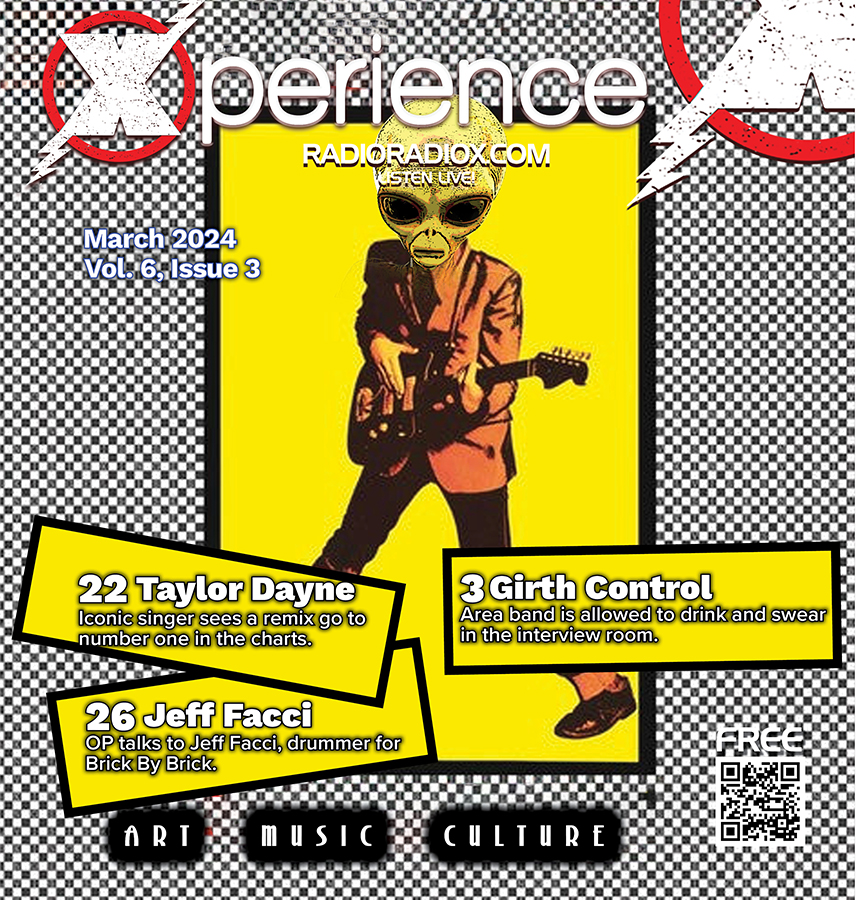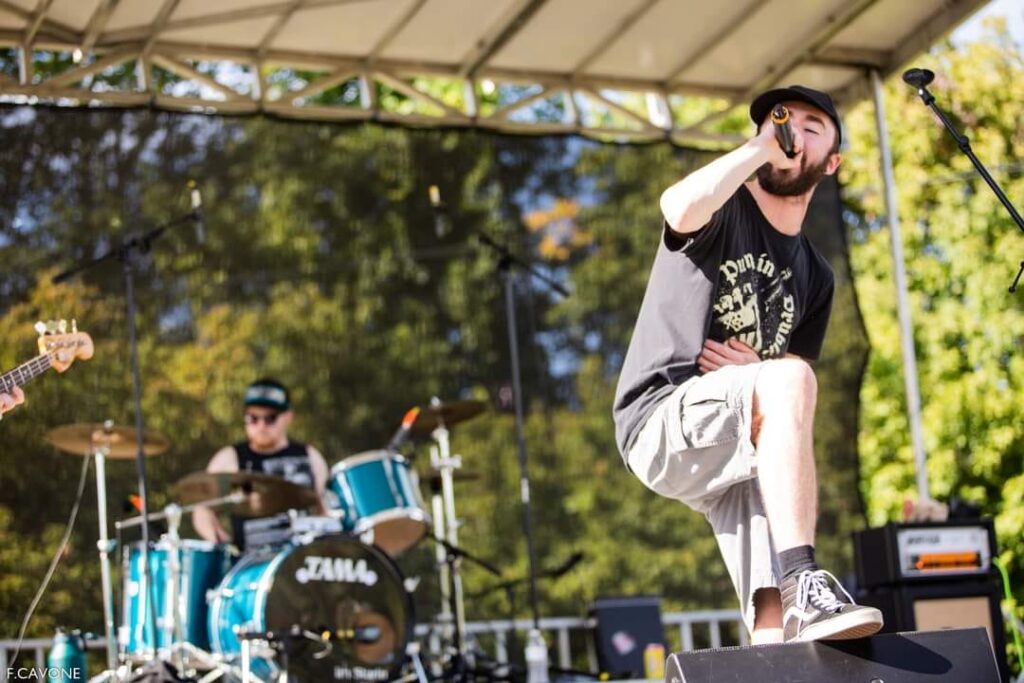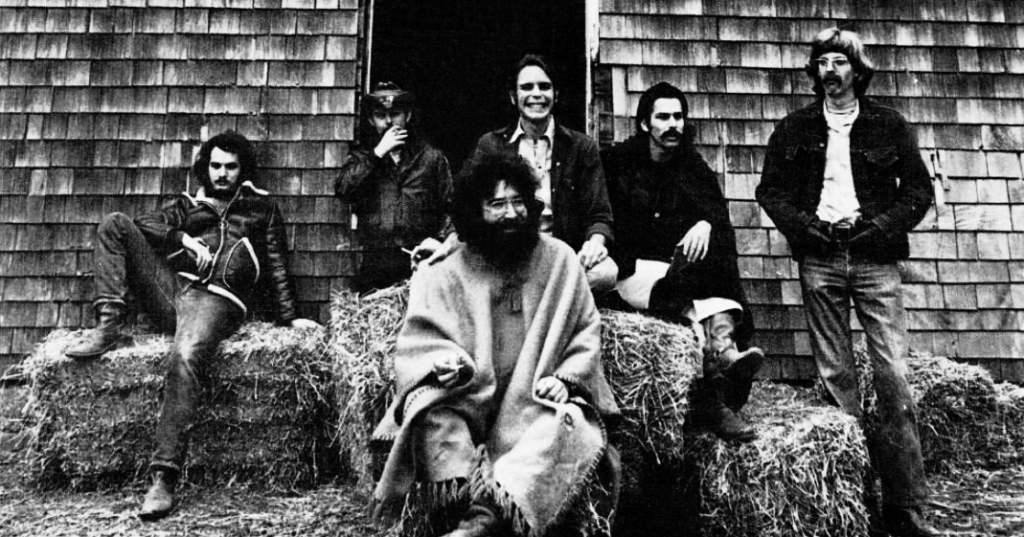Chariot of the Gods: Dave Faulkner (HOODOO GURUS) Interview By: Dick Beach
Written by Staff on April 11, 2022
Dave Faulkner is the leader of the HooDoo Gurus. A fascinating character, a storyteller – sometimes of difficult topics – and just a great guy.
RRX: First, obviously, thank you for taking the time out. Cary (Dave’s publicist) is a complete mensch. He’s great. We love him. So, thank you for that.
DF: My pleasure.
RRX: We try to bring these things to where we are. The first question is that – I’m gonna test your memory.
DF: Ooh. Now we’re in trouble.
RRX: Around about the mid ’90s, you were in the United States, and you played a place called Positively Fourth Street in Troy, New York, with the Fleshtones. Do you recall that?
DF: Oh, yes. Yes. Well, the Fleshtones are all friends of mine. Troy is actually the hometown of Bill Milhizer, their drummer.
RRX: Yeah, which is why we know them so well.
DF: Right.
RRX: I guess I want to start with where you’ve talked about your dad having been on the Canberra in World War II.
DF: Yeah, the Canberra. Yes, it was a terrible thing for him. You’re 23 years old and the ship was lost and lost about a fifth of its company and the crew, including his best friend. So yeah, that profoundly affected him all his life. We didn’t really know much about it as far as the effect it had on him ’cause he never spoke of it. But it became very obvious towards the end of his life. He got a disability pension because of the different injuries that were caused by that. We started to hear a little bit more about specific things.
Yeah, a very important event, obviously. He was very grateful ’cause we actually ended up playing on the next Canberra. They had a new vessel called the Canberra in the Australian Navy. That came to the end of its service life and they were going to scrap it.
They used one of our songs, “A Thousand Miles Away,” as their ship’s anthem, in a sense. Whenever they’d leave port, the families would be waving them goodbye for several months or whatever, they’d play that song over the loudspeakers on the ship.
When the ship was being decommissioned, there was just us. There were no other dignitaries there, no mayors or ministers of defense or anything else like that. It was just the ship’s crew, the Hoodoo Gurus and my dad. It was quite unique.
RRX: Am I correct that, originally, you were considered a punk band?
DF: No, I was in a punk group before the Hoodoo Gurus, back in 1977-78. But we were inspired by punk, and I still feel that was important, a very important moment for me in my development, the punk era. It basically gave me the crucible that melted everything together and made it into a new alloy for me. All the different elements in music, which I hadn’t quite put together in my mind. It made me see it all in a very super sharp perspective.
Obviously, after that, I realized it was a bit of a narrow view and I wanted to expand my tastes and my horizons, and not just see it through this rigid punk viewpoint.
RRX: My wife, who grew up on Long Island and lived in Queens for 20 years, saw the Ramones more than anyone I know.
DF: Wow. They’re still one of my favorite bands of all time.
RRX: They were just ridiculously great.
DF: Yeah. But the Dictators are from Queens as well.
RRX: Oh yes, they are.
DF: Ramones, the Dictators. People don’t talk about that enough.
RRX: If you were to make a comment about the Dictators, what would be the nature of what you would say?
DF: Well firstly, they were masters of the juvenile, smart-aleck kind of songwriting. Andy Shernoff is one of the great songwriters. He’s still doing great work. They’ve got a new album out not that long ago. Andy’s still top of his game.
Unfortunately to say, they’re not one of the bands that gets all the kudos ’cause they were a bit before punk. They were never really part of that scene. But yeah, they were pivotal really. The Cramps, another band –
RRX: Oh, the Cramps. Lord.
DF: Two famous Ramones covers were done firstly by the Dictators, “California Sun” and “Surfin’ Bird” by the Cramps. These are bands that people don’t realize how much they influenced bands that… The Ramones are one of my favorite bands of all time.
They brought it to the forefront of what matters in music. No one can underestimate how good the Ramones were or how important they were. I certainly don’t. But they got it from somewhere and some of those places were the Dictators and the Cramps.
RRX: The Ramones did more with three chords than anybody on the planet.
DF: Oh, yeah. Dee Dee Ramone, what a brilliant songwriter. Joey, yeah. I mean, we could go on and on. There’s no end to my love of Ramones.
Yeah, we still value our Ramones connections and they still are working out well for us, as well. We take a lot from them.
RRX: So, the new album, “Chariot of the Gods”. You have done this during the pandemic. Is it about this two-and-a-half-year mess?
DF: No.
RB: Or is it just man, we’re gonna do a record?
DF: Well, we were planning to do it anyway, so that’s the thing. We’ve been sitting on our hands for too long. There’s a whole lot of reasons for that, which I can’t be bothered going into now.
But we didn’t expect, A, to not play at all in 2020, so that was a bit of a shock. Then, on top of that, for that to drag on through 2021 as well. It’s been an incredibly difficult time as you don’t need me to tell you. Everyone’s been going through the same thing.
So, I can’t tell if there’s any influence of the pandemic. But certainly, as a songwriter, I didn’t think of it when I was writing.
RB: Well, from my perspective, because the record is coming out on the 11th, that means I can buy it on the 11th.
I listen to your music and there is stuff there that hits me hard. It really does. I am fascinated about how you can write things that hit someone in the face that hard.
DF: The song I mentioned, “Answered Prayers” was one that hit me in the face pretty hard. It’s written about an abusive relationship, emotionally abusive. It’s not physically abusive – at least it could be, but it doesn’t specify that. There certainly is emotional abuse on display in the lyrics.
I wrote in the perspective of the actual abuser, which was a very dark place to be as a writer. Those words just poured out of me one morning.
I was kind of shocked by the lyrics because they were very simple, but they lay out quite an insidious mind game that this person is playing. It’s really ugly and stark. It’s got a whole lot of content in there that’s got a lot of weight. It isn’t kid stuff, you know?
RB: How do you, as a writer, get beyond the popular stuff that is gonna make people happy and that which is going to make you as a writer happy?
DF: Well, you don’t have to think like… I mean, I deliberately don’t think at all about these sorts of questions when I’m writing a song.
RB: I’m sorry. “I don’t think at all.” Brilliant.
DF: No, no. You don’t because you try to switch off the critic because you’re an artist. You’re literally playing with elements. A bit like a painter, doing shapes and colors or whatever. They may not be painting a particular specific scene, but they’re just experimenting with textures and patterns that excite them. Then, lo and behold, it reveals something to them that triggers something else that they develop, and it becomes something.
But as far as generally building the song in the first place and creating the actual thing, it’s really you almost discover the song. You don’t manufacture it.
RB: This is how I end interviews because we all have what I would say is a comment to the world. We have a statement, something that we would like people to think about.
DF: Okay. I’m not sure I could wrap it up in 30 seconds, but…
RB: No, no. My point being that I like to end an interview with the person I’m talking with by giving them a chance to say whatever they would like about the world, about themselves, about how we ought to think about each other.
DF: Well, I’ve got a very small one. It’s not gonna be a grand solution to all that ails us or the planet. But I am an older person. We’ve been going at it a long time and I’ve been on the planet for a while. There’s one thing that I did experience. We worked very hard for a very long time, the Hoodoo Gurus early on. I started the band when I was 23 years old and I’m 64 now.
From the age of 50, suddenly you start to need reading glasses and things like that.
So, all I want to say is, don’t be afraid of old age. Obviously, try to look after your health as much as possible so that the physical vehicle you’re in doesn’t let you down and break down too often. But as far as how you feel as a person, it gets better and better and better. That’s the part I’m most excited by because it’s been great being 40, being 50, and now 60.
Unfortunately, I do have more creaks and a little bit more arthritis in my feet, or something else going on, as you say. But emotionally and mentally – well luckily, I’ve still got my wits about me. So relatively speaking, I can’t tell. But you feel better. So, don’t be afraid of old age. Welcome it because it’s great.
RB: Excellent – thank you. Thus, endeth the interview.



 RadioRadioX
RadioRadioX